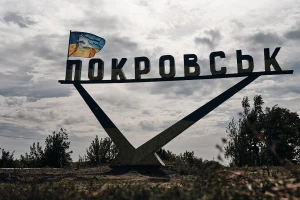
EU points out difficulty of confiscating Russian assets
The EU noted that the plans to confiscate Russian assets, primarily state-owned ones of about $350 billion, are unprecedented and complicated
This was stated by the head of the EU task force, Anders Anlid, Euractiv reports.
According to him, "nothing is simple" when it comes to finding the massive sums intended to be diverted to pay for Ukraine’s reconstruction. At the same time, the Swedish diplomat noted that Europe plans to be "innovative".
"It is a challenge to find legal means that are acceptable," he said.
Moreover, many Russian citizens targeted by sanctions have contested them in court. In one high-profile case, the EU General Court in early March issued an interim order suspending part of the sanctions against Russian Formula One racing driver Nikita Mazepin. He is the son of the owner and chief executive of chemical products manufacturer Uralchem.
According to Anlid, this "just shows that our European Union is a union built on the rule of law."
It is noted that precedents for asset confiscation are rare even at the global level, with the exception of Iraqi assets seized by the United States at the end of Saddam Hussein's regime.
"Hopefully, we can achieve results during Sweden’s EU presidency which ends in June. But these are complicated matters. There will be short-term and long-term aspects of what we’re doing," he said.
According to the media outlet, Ahnlid, the director general of Sweden’s National Board of Trade, does have experience in this field. He previously worked on the sanction packages imposed on Moscow following its 2014 annexation of Crimea.
The lawyers distinguish between private assets frozen by Western governments, such as the yacht of a Russian oligarch, and state property, such as the foreign exchange reserves of the Russian central bank.
State assets are usually larger and easier to confiscate legally. According to the EU, Russia's foreign exchange reserves alone amount to almost $300 billion.
It has also been reported that in the case of private assets, legal safeguards mean Western states can permanently seize them only in very limited circumstances — usually when they can be proven to be the proceeds of crime.
According to Anlid, one option would be to "not confiscate assets permanently, and only seize income or interest on the capital."
The EU task force is meanwhile still trying to identify the Russian assets, and hopes to have made progress on that by May.
“Which assets are we talking about and where are they? That picture is not yet quite as clear as it needs to be,” Ahnlid said.
Private assets are meanwhile often protected by dummy companies, making them more difficult to seize. But despite the difficulties, Ahnlid said “it is natural that this aggressor should pay and make up for the brutal destruction of Ukraine that is taking place.”
-
On March 20, it was reported that most EU countries had approved a plan to supply ammunition to Ukraine. However, there has been no official announcement yet.
-
Several countries are not on the preliminary list of project participants, but Hungary has recently officially announced that it has refused to participate in the purchase of 1 million rounds of ammunition for Ukraine.
-
Later, it became known that Poland and several other countries had not signed the EU plan to supply ammunition to Ukraine because they had not completed "internal procedures."
- News













































